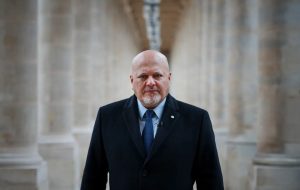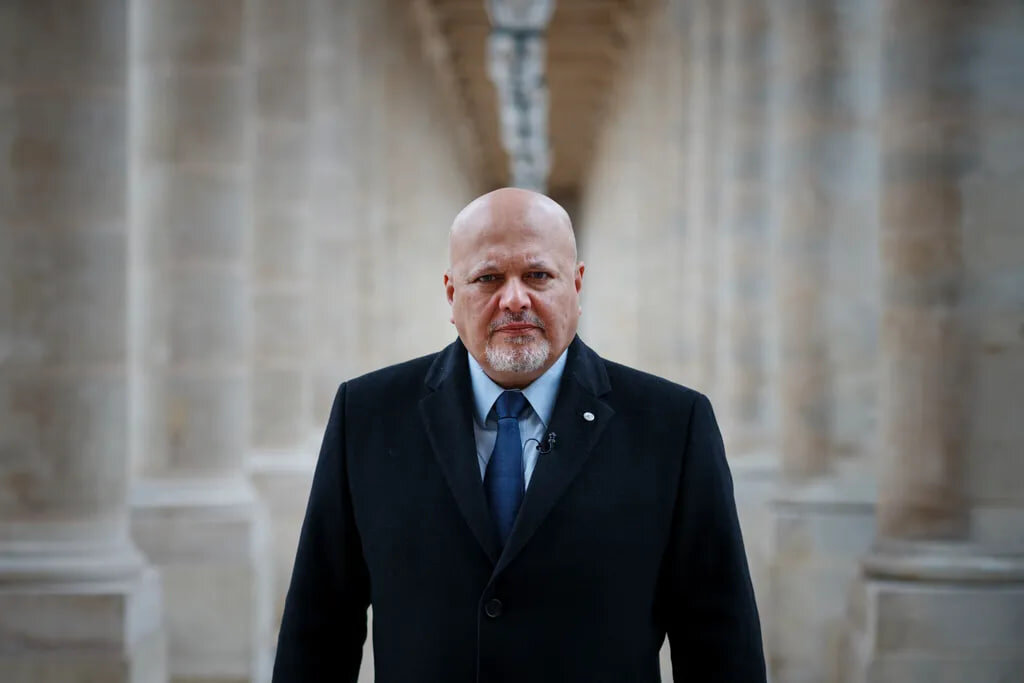ICC chief defends arrest warrant against Netanyahu for Gaza war crimes
The chief prosecutor of the International Criminal Court (ICC) has defended his pursuit of arrest warrants for Israeli Prime Minister Benjamin Netanyahu and others, emphasizing the need for timely action in investigating war crimes in Gaza. “Should I wait until everybody’s dead?” Karim Khan said in an interview with German weekly Der Spiegel, dismissing claims


The chief prosecutor of the International Criminal Court (ICC) has defended his pursuit of arrest warrants for Israeli Prime Minister Benjamin Netanyahu and others, emphasizing the need for timely action in investigating war crimes in Gaza.
“Should I wait until everybody’s dead?” Karim Khan said in an interview with German weekly Der Spiegel, dismissing claims of hasty decision-making regarding arrest warrants for Israeli politicians and three Hamas leaders.
“If your father, your mother, your grandfather was a hostage, would you really want me to wait? If this was your child or your sister blown to bits, would you want me to wait?” he said, stressing the importance of immediate legal intervention in ongoing conflicts.
“We shouldn’t indulge ourselves into thinking that the suffering of people is something to comment on in the future. The law must be felt in real time. If you are a firefighter, you don’t wait until the house is burned down and the neighborhood is in flames,” he said.
The ICC, established in 2002, investigates and prosecutes individuals for international crimes such as genocide, crimes against humanity, and war crimes.
In May, Khan issued arrest warrants for Netanyahu, war minister Yoav Gallant and three Hamas leaders – Yahya Sinwar, Ismail Haniyeh and Mohammad Deif – following a months-long investigation into war crimes and crimes against humanity during the Gaza conflict.
Haniyeh and Sinwar are confirmed dead, while Hamas has yet to publicly confirm Deif’s demise.
The process faced delays due to reported Israeli espionage operations targeting the ICC and diplomatic pressure from Israel’s allies.
Asked about Germany’s argument that the ICC should only intervene when a state is unwilling or unable to investigate potential crimes, Khan criticized Berlin’s pro-Israel stance, and underlined that political considerations should not undermine justice.
“Israel has very capable lawyers and judges. The question is: Is the law being applied in the occupied territories?” he said, referring to the illegal policies and practices in the occupied Palestinian territories.
s it simply that there should be no justice because a country is an ally?” the ICJ chief stressed.
“If you read what experts are writing and look at what’s happening on the ground, we don’t see investigations. We don’t see accountability. Again: What is the complaint? Is it simply that there should be no justice because a country is an ally?” he stressed.
In response to accusations of antisemitism following the issuance of arrest warrants against Israeli leaders, Khan dismissed such claims, citing his long-standing respect for Jewish faith and culture.
“There is a lot of abuse and threats and games going on between political leaders, intelligence agencies and interest groups. But I know who I am,” he said.
“The Jewish religion is the great teaching of the Prophet Moses, and I have a lot of respect for the Jewish people and the Jewish faith,” he added.
Khan underlined the importance of applying the law equally worldwide, and said all people deserve equal protection before the law irrespective of their ethnicity, religion or origin.
“Every victim is equal. I have as much regard, attention and love for a Jewish child as for a Palestinian child, or any other person anywhere in the world,” Khan said.
“It’s about equality before the law. I have the responsibility to investigate as effectively as I can,” he added.
